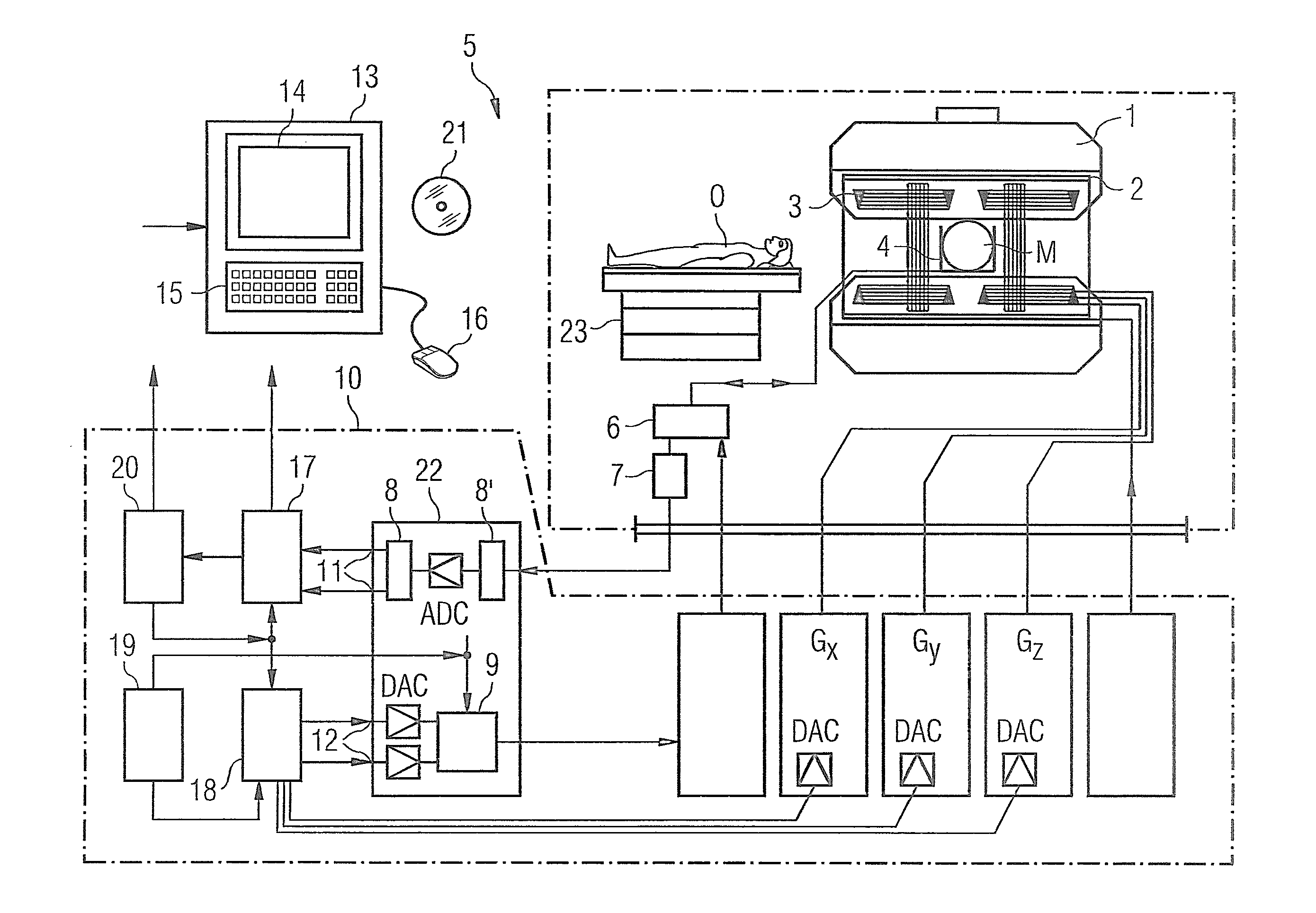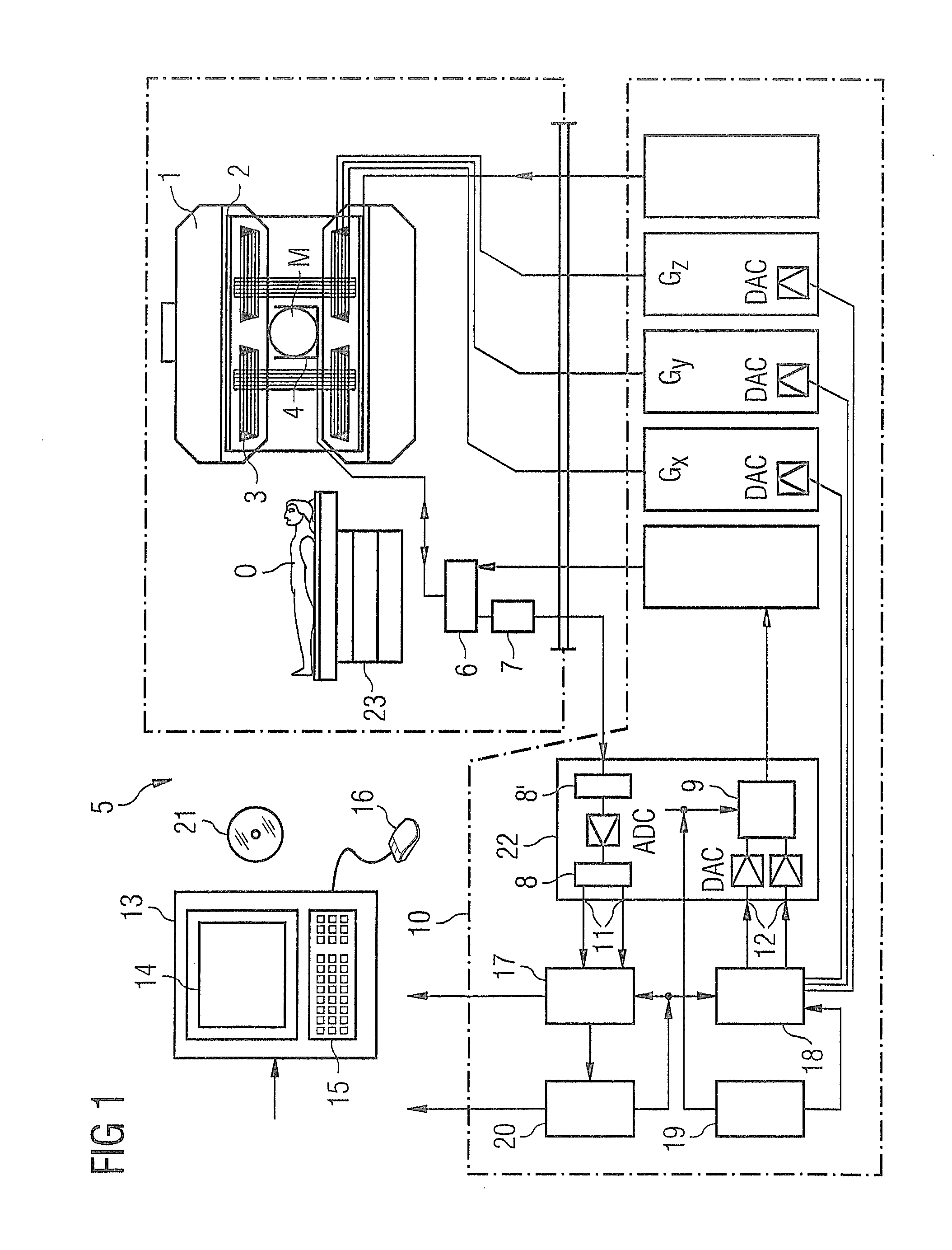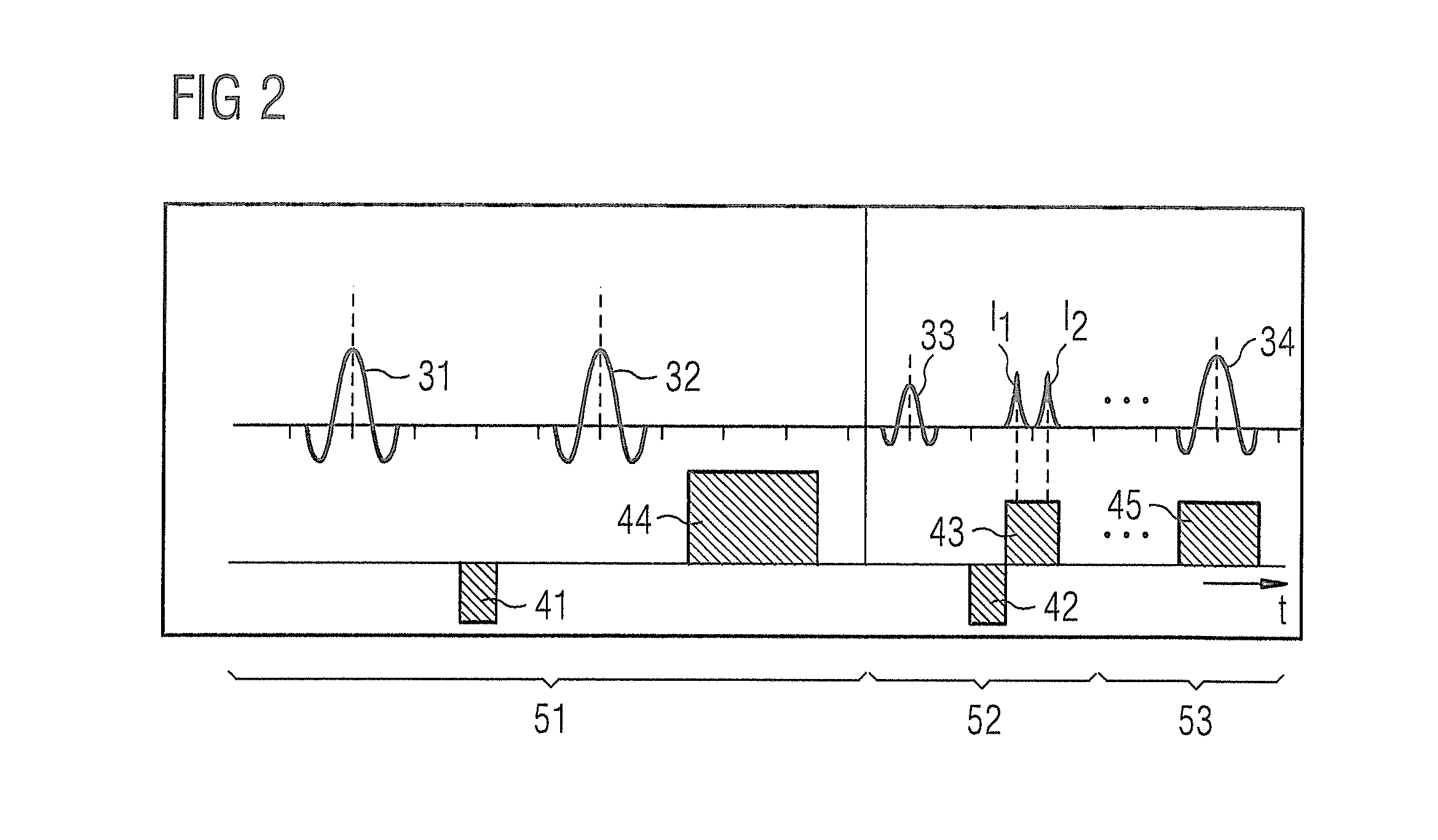Magnetic resonance system and method to acquire mr data and to determine a b1 magnetic field
a magnetic field and magnetic resonance technology, applied in the field of magnetic resonance system and method to acquire mr data and determine a b1 magnetic field, can solve the problems of disadvantageous adulteration of gradient echo intensity, negative affect or adulteration of mr data acquired for a current sequence, and inability to determine the b1 magnetic field
- Summary
- Abstract
- Description
- Claims
- Application Information
AI Technical Summary
Benefits of technology
Problems solved by technology
Method used
Image
Examples
Embodiment Construction
[0062]FIG. 1 is a schematic depiction of a magnetic resonance system 5 (a magnetic resonance or magnetic resonance tomography apparatus). A basic field magnet 1 generates a temporally constant, strong magnetic field for polarization or alignment of the nuclear spins in a volume segment of a subject O (for example of a part of a human body that is to be examined) which, lying on a table 23, is examined in the magnetic resonance system 5. The high homogeneity of the basic magnetic field that is required for the nuclear magnetic resonance measurement is defined in a typically spherical measurement volume M in which the parts of the human body that are to be examined are arranged. To support the homogeneity requirements, and in particular to eliminate temporally invariable influences, what are known as shim plates made of ferromagnetic material are mounted at a suitable location. Temporally variable influences are eliminated by shim coils 2.
[0063]In the basic field magnet 1, a cylindric...
PUM
 Login to View More
Login to View More Abstract
Description
Claims
Application Information
 Login to View More
Login to View More - R&D
- Intellectual Property
- Life Sciences
- Materials
- Tech Scout
- Unparalleled Data Quality
- Higher Quality Content
- 60% Fewer Hallucinations
Browse by: Latest US Patents, China's latest patents, Technical Efficacy Thesaurus, Application Domain, Technology Topic, Popular Technical Reports.
© 2025 PatSnap. All rights reserved.Legal|Privacy policy|Modern Slavery Act Transparency Statement|Sitemap|About US| Contact US: help@patsnap.com



